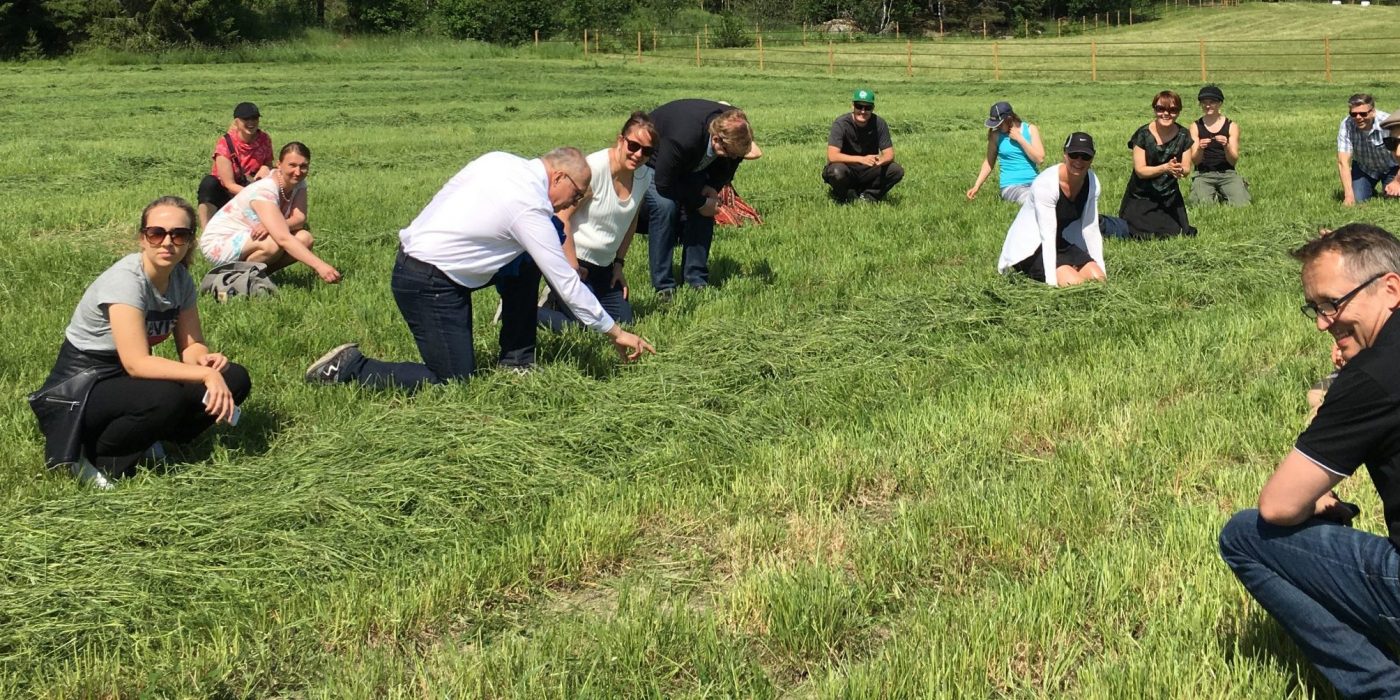Soil and its essence are integral to the operation of the food chain. The health of the soil is at the core of sustainable food production – that’s where it all begins. This is something that Nina Elomaa, S Group’s Corporate Responsibility Director, and Juha Nousiainen, Senior Vice President in charge of Valio’s Carbon-neutral Milk Chain, agree on.
“Valio‘s goal is to reach carbon neutrality in the milk chain by 2035. In this work, soil is possibly the most important question. This is where the food chain‘s work for a healthy soil culminates in. This is how the food chain and agriculture can do their part in mitigating climate change and improving the possibilities of food production“, explains Juha Nousiainen.
Carbon farming or regenerative farming is a hot topic. It has something old, something new and something borrowed. Improving farming methods in practice is the key to change.
“S Group‘s goal is to be carbon negative by 2025, and the soil has an important role in reaching the goal. What‘s great about working with soil is that it combines the soil health and productivity, waters, nutrient circulation, biodiversity and the climate. The farmers also benefit from the work. It‘s a great combination“, Nina Elomaa tells excitedly.
Research is central in improving the sustainability of food chains through soil work. In addition to it, practical measures – like carbon farming training for farmers and communication with consumers -are important. We have to create concrete action.
It is important to find methods in primary production that improve productivity and the soil, as well as mitigate climate change and strengthen biodiversity. To succeed, we have to support the farmers in developing their profession and farm even better. When done right, carbon farming does all that. The three aspects of responsibility – environment, social and economic – are fulfilled well here. We have to work together to find the means; making someone feel guilty doesn’t change anything.
Retail also has its place in the chain from the fields to the table. In soil work, the retail business’ most significant role is in communicating with the consumers. The shops are the first link in the food chain that the consumers meet, so they are also the link to the consumers’ tables and fridges.
The S Group takes its role seriously, although communicating with the consumers may be challenging at times. However, the work advances as customers are more and more interested in the climate and the environment. They want to know, how they can make a difference with their own actions. We have to help the consumers make choices when information is plentiful, and decisions are made fast in the aisles of grocery stores.
Successful communications are a significant part of sustainability work. Every actor within the food chain is responsible for helping the consumers develop their information literacy skills to make smart choices. Digitalization has to be utilized in communications. It also has the potential to significantly speed up soil work.
The newly published E-college for Regenerative Agriculture is an important tool in this work [https://carbonaction.org/en/a-leap-forward-in-regenerative-agriculture-collective-effort-across-finnish-food-chain-makes-online-course-available-to-all/], as it gathers the different actors in the food chain to discuss together. The consumers can also meet the farmer and learn about the daily life in food production. Juha and Nina view the E-college as an important innovation that combines digitalization, implementing research and wide scaling.

Compensation should also be considered when aiming for carbon neutral operations. It would be great if soil carbon sequestration could be used for compensating for emissions. It would close the circle in a nice way and be interesting to the consumers.

